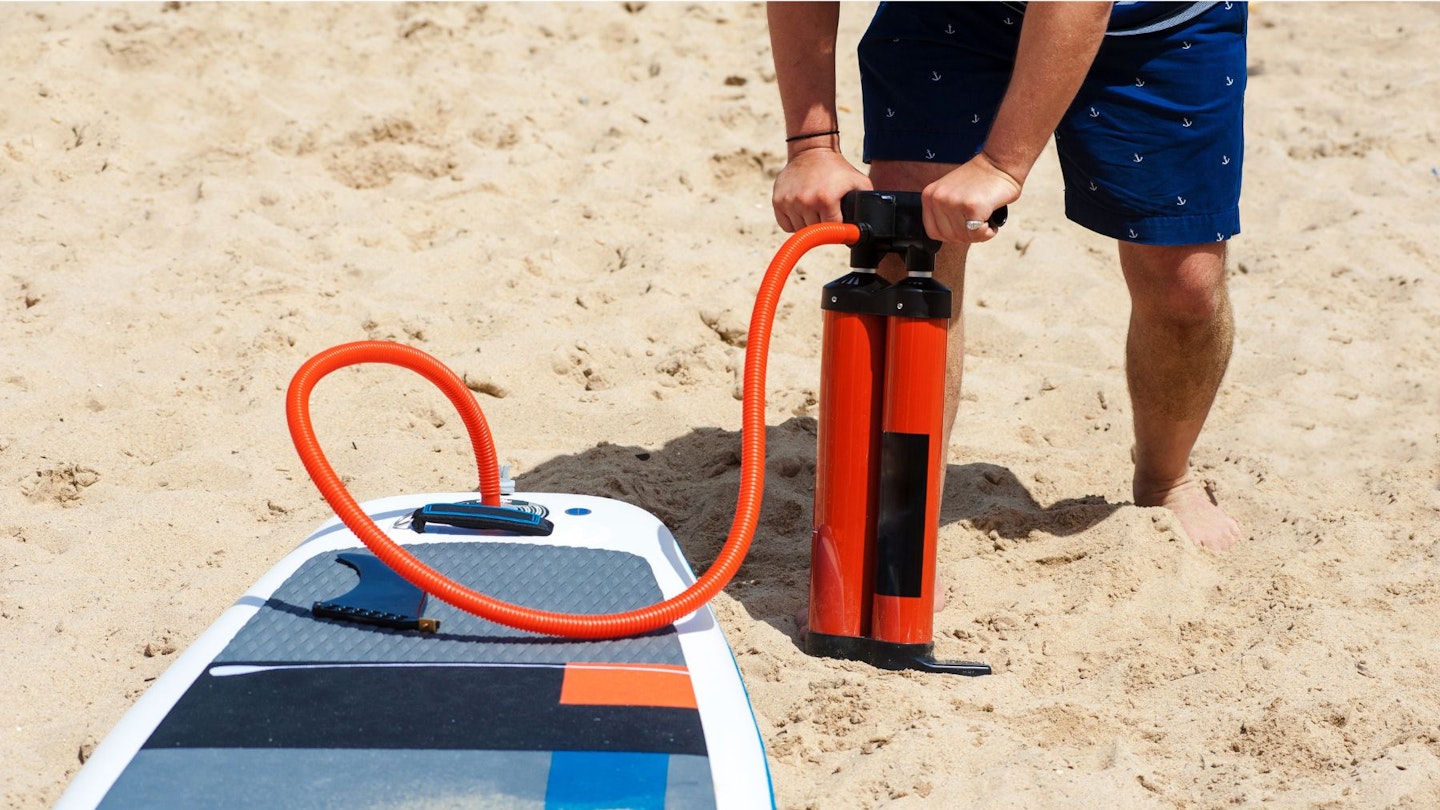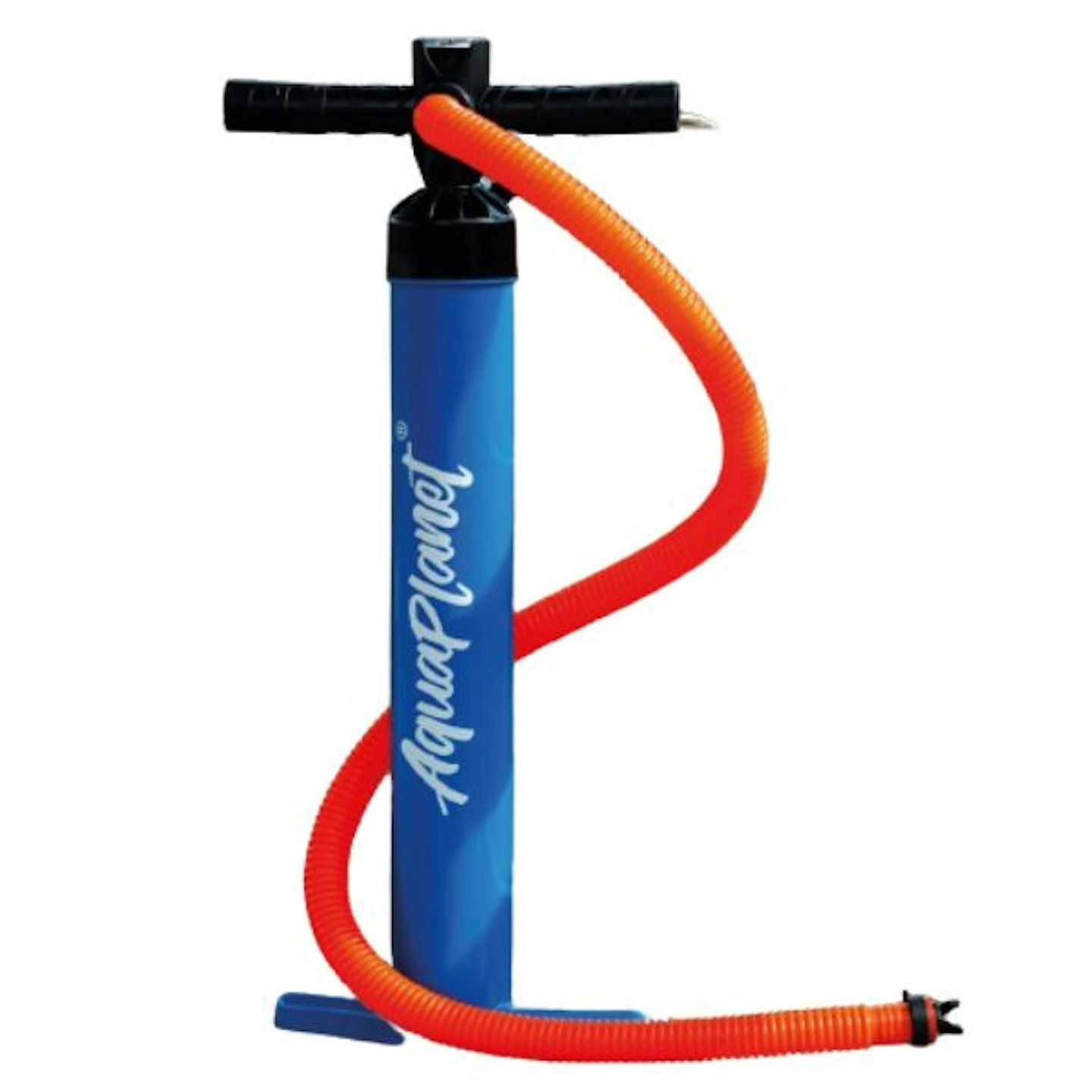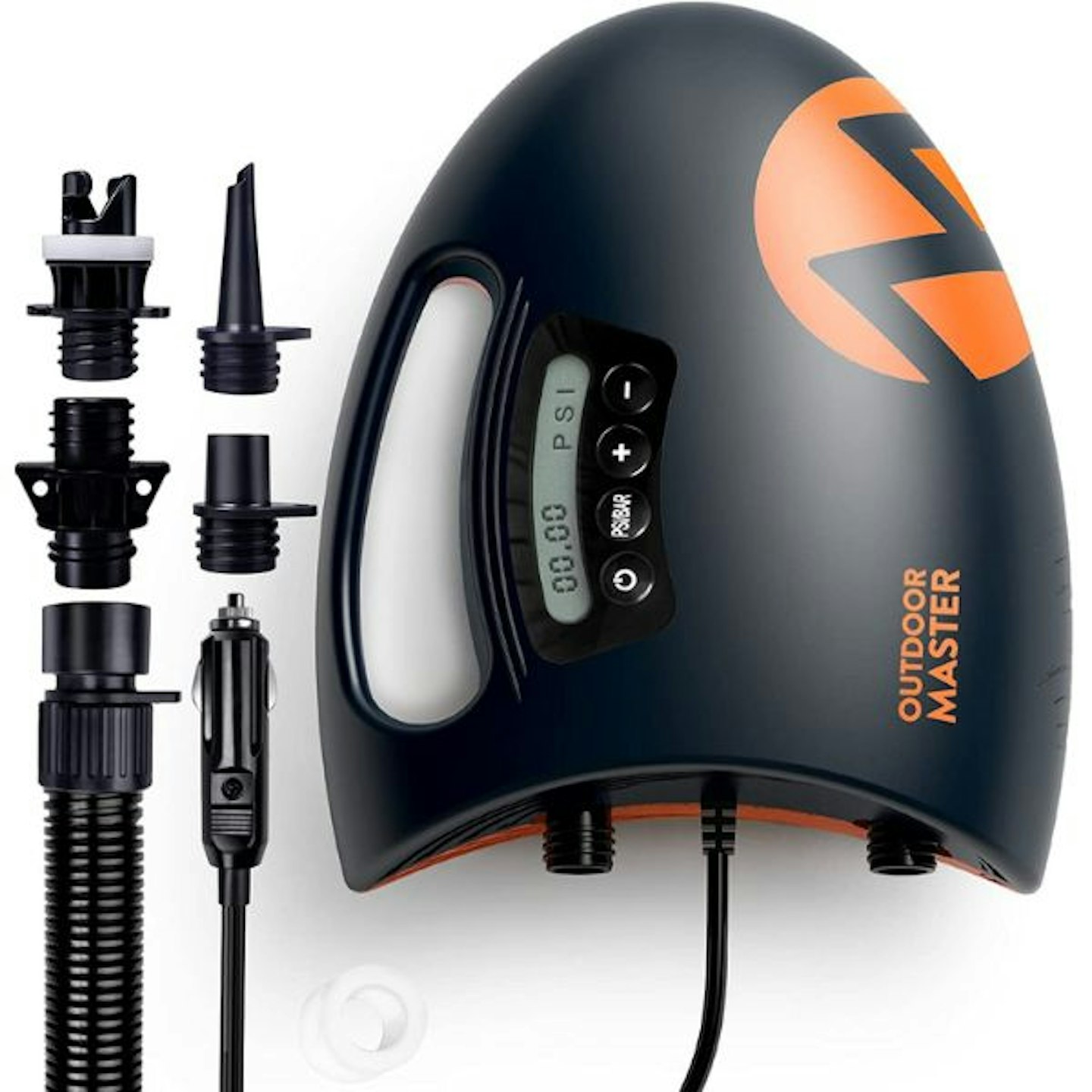There’s a craze which has been taking over the shores of Great Britain for a little while now. We’re talking about stand-up paddleboards. There are a few different stand-up paddleboards, racing paddleboards, touring paddleboards and the inflatable kind.
For an inflatable paddleboard, you’re going to need a pump. There’s no way you’ll blow it up with lung power alone, certainly not after the workout of getting into your wetsuit. Usually, when you buy a paddleboard, a pump can come with it. However, if you’re buying a second-hand inflatable paddleboard or your pump has broken, you can purchase these separately. They don’t have to be as expensive as you may first fear.
A good pump will cut down blow-up time and even reduce deflation time, as some work both ways, allowing you to get all the air out of your paddleboard, ready for packing away.
The best inflatable paddleboard pumps at a glance:
• Best budget manual pump: AQUAPLANET GRI Dual Action - View on Amazon UK
• Best electrical pump: OutdoorMaster 20PSI High-Pressure SUP Air Pump - View on Amazon UK
We’ll cover two different types of pumps in this article, the manual kind and the electric type. There are, as always, things to look out for in both. While a manual hand pump will require more effort, you can have a single or dual action. This means you’ll inflate your paddleboard as you push down and pull up on the pump. This will reduce your pumping time and takes less effort to get your paddleboard ready.
The other option is an electric pump, which sounds great. You can inflate your paddleboard while doing something else, like getting your wet suit on. However, you will need electrical power to use your electric pump. This can be achieved in two ways: using your car’s 12V socket or portable battery or using an electrical pump with its own battery. Needless to say, if you’ve walked down to the beach away from your car and then you have to blow your paddleboard up, you do not have the electrical power from your vehicle. While an electrical pump might be easier, it has its logistical issues.
But what’s the best stand-up paddleboard pump? Let’s take a look.
The best stand-up paddleboard pumps
Best budget manual pump
Fuss-free and low-priced, a dual chamber, dual action pump to get you floating on the water as quickly as you can pump your board up. The advantage of a dual-action pump means you can inflate quickly to start with and then when your board is almost fully inflated, you can switch to single action and get the correct PSI.
Pros
- Dual-action
- Double chamber
Cons
- Not the most durable option
| Dual pump: | Yes |
| Max PSI: | 21 |
| Auto shut-off: | Not applicable |
Best electric pump
If you've got more than one board to inflate, you'll know the struggle you face with an electric pump that overheats. Waiting for it to cool down can take way longer than blowing a paddleboard up. Thankfully OutdoorMaster has made such a pump with an active cooling system, which can blow up three boards one after the other.
Pros
- Dual-stage pumping will get your board inflated quickly to the correct pressure
- Active cooling system
- Upto 20 PSI of pressure
Cons
- Requires a power source
| Dual pump: | Yes |
| Max PSI: | 20 PSI |
| Auto shut-off: | Yes |
Best budget electric pump
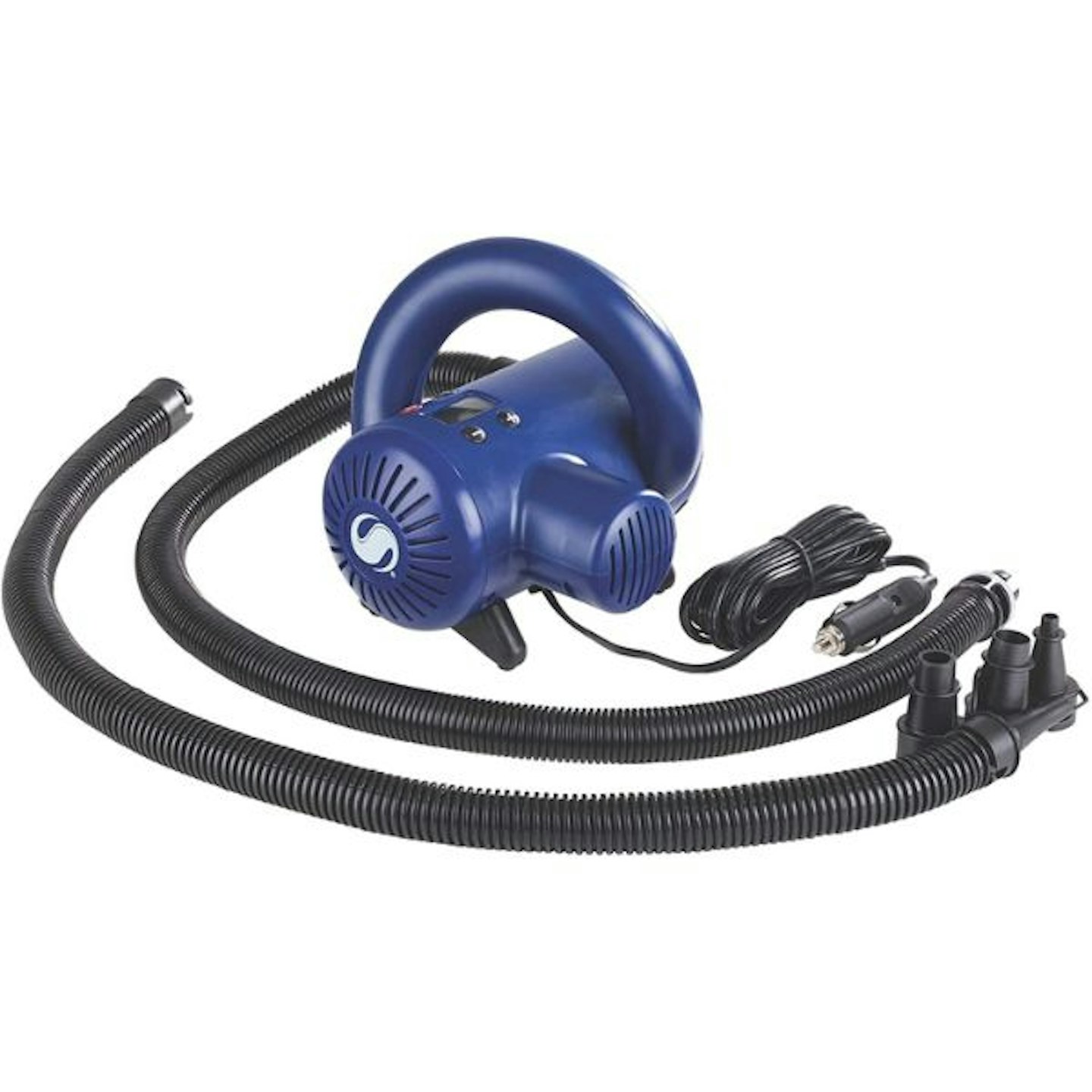
Attach one end of the high-pressure hose to your pump and the other to your SUP, and you'll have it inflated all before you can get your wet suit on. You can use the low-pressure hose to inflate other low-pressure inflatables.
Pros
- Easy to use
- Auto shut off
- Inflates up to 15 PSI
Cons
- Requires a power source
| Dual pump: | No |
| Max PSI: | 15 PSI |
| Auto shut-off: | Yes |
Best manual pump
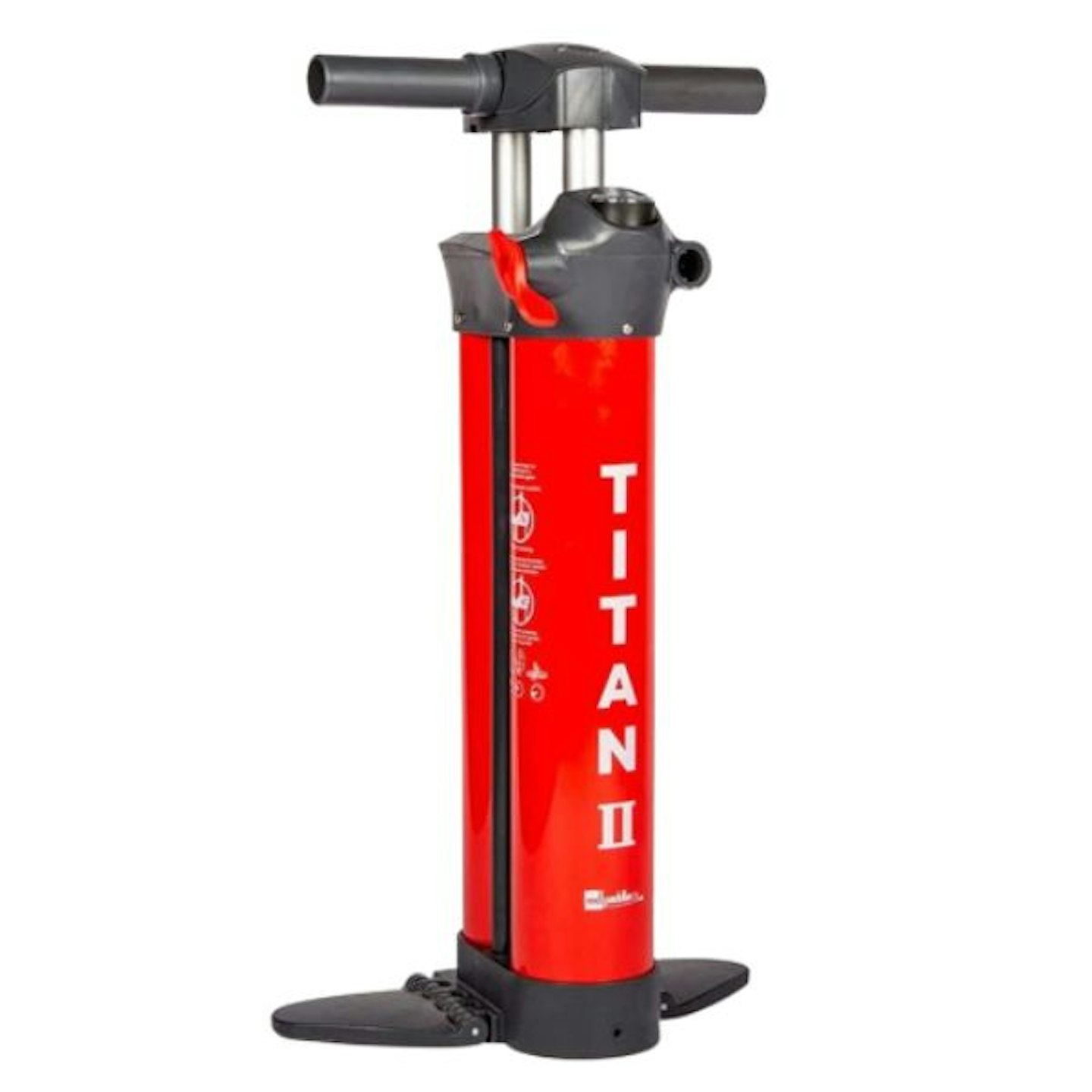
red-equipment.co.uk
Titan claims the Titan II is the world’s first purpose-built, double-chamber SUP pump. The amazing stand out from this pump is that it’ll pump air out at 60 miles per hour, meaning you should get that board inflated much quicker using this pump. Possibly quicker than if you were to use an electrical pump.
Pros
- Solid
- Durable
- Quick inflation time
Cons
- Requires a power source
| Dual pump: | Yes |
| Max PSI: | Not given |
| Auto shut-off: | Not applicable |
Best battery-powered electric pump
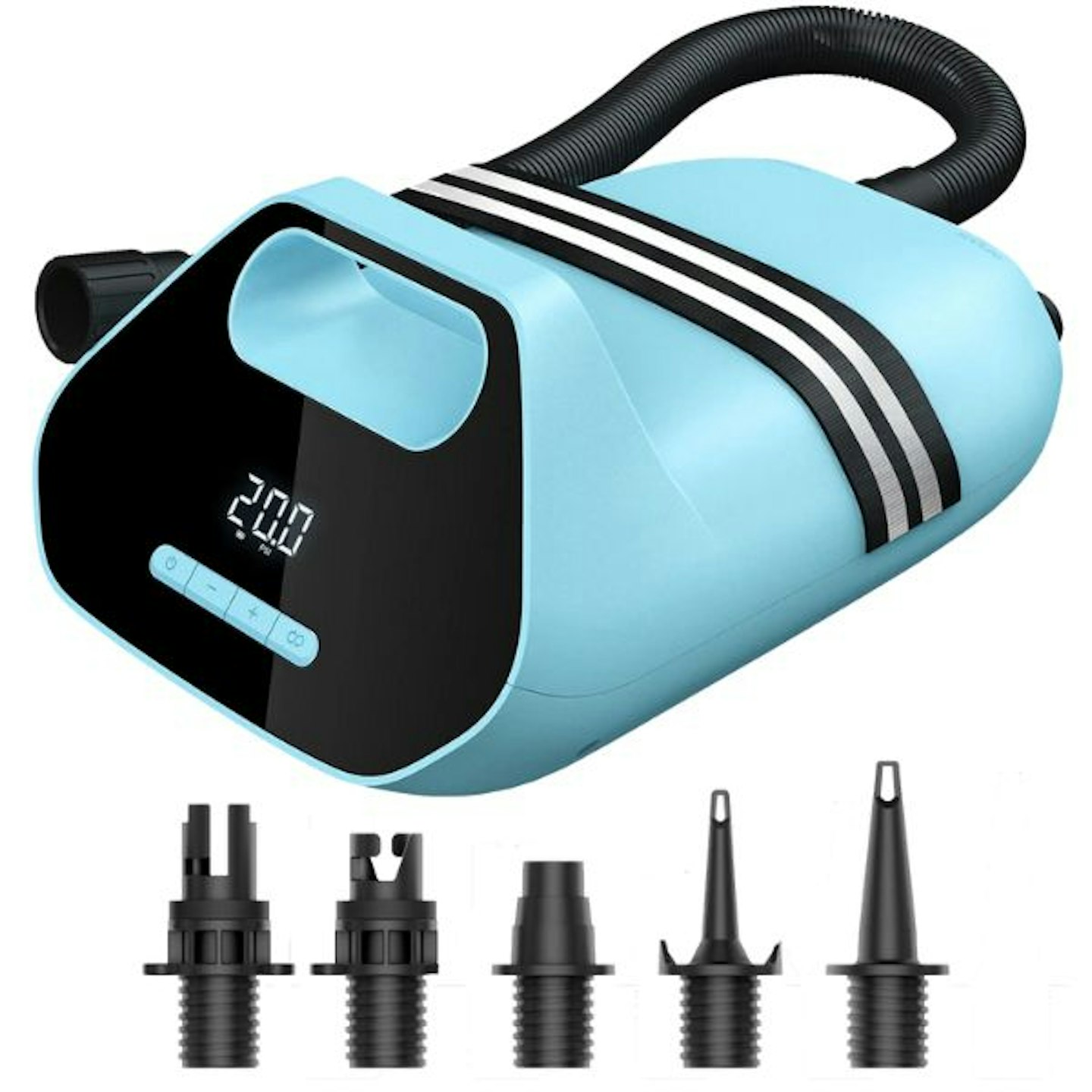
wavesupboards.com
Here’s an electrical pump with its own battery to get you up and paddling in no time. It can put out 20 PSI, which is going to be plenty for a day spent on the rivers. Just make sure you charge it up before you head out. Though, you can always charge it on the drive to your day-out - the battery is rechargeable via a 12V connection.
Pros
- Portable
- Easy to use
Cons
- You have to make sure it's charged before you head out
| Dual pump: | No |
| Max PSI: | 20 PSI |
| Auto shut-off: | No |
Best single-action pump
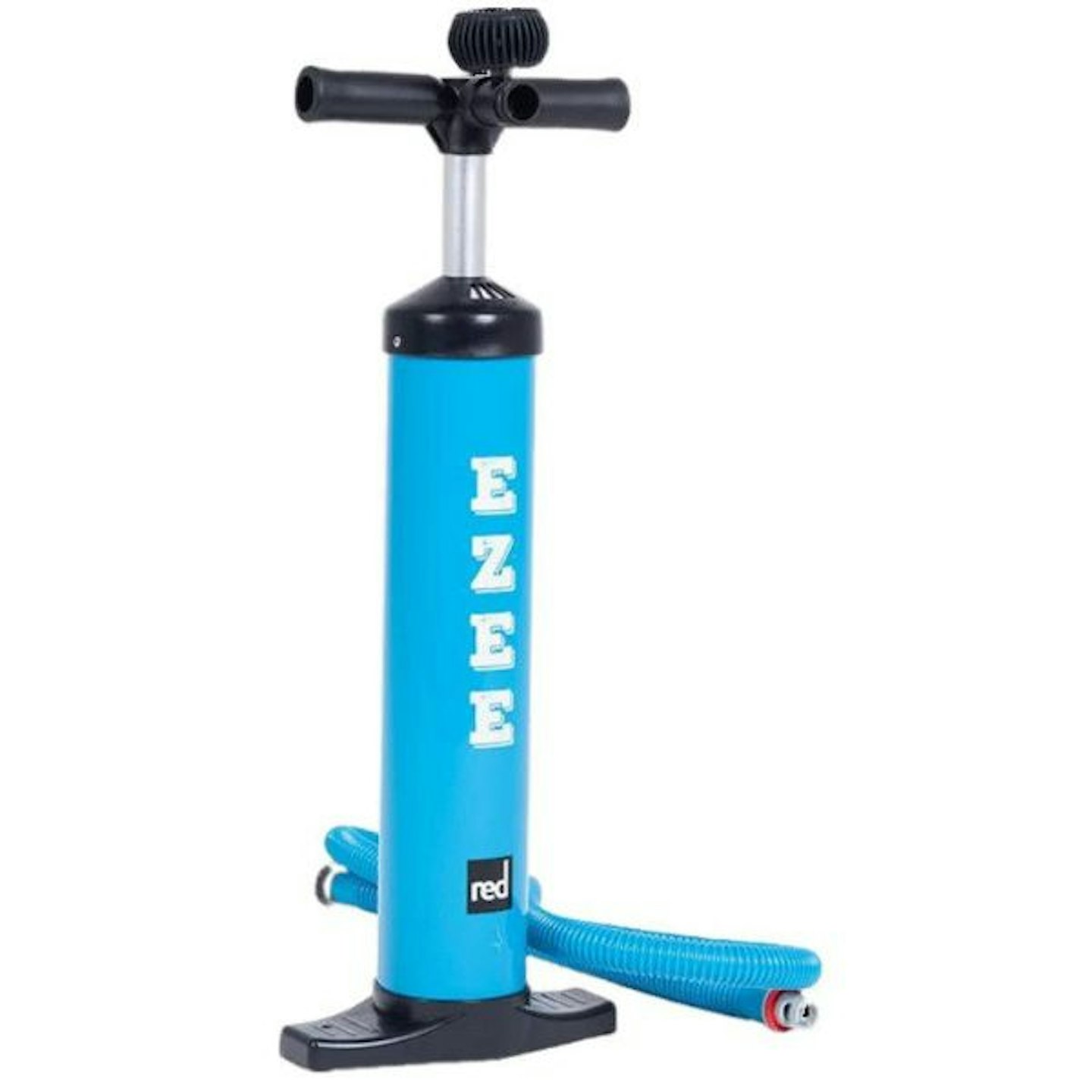
red-equipment.co.uk
With one large cylinder, the Ezee pump is an easy pump to inflate your paddleboard. It may take longer than a single cylinder, but it’s a cheap and cheerful option. Wide handles and feet give you stability and control as you pump up your paddleboard.
Pros
- Ergonomic
- Easy to use
Cons
- The Wave pump is dual-action and cheaper
| Dual pump: | No |
| Max PSI: | Not Given |
| Auto shut-off: | Not Applicable |
Best dual-action pump runner-up
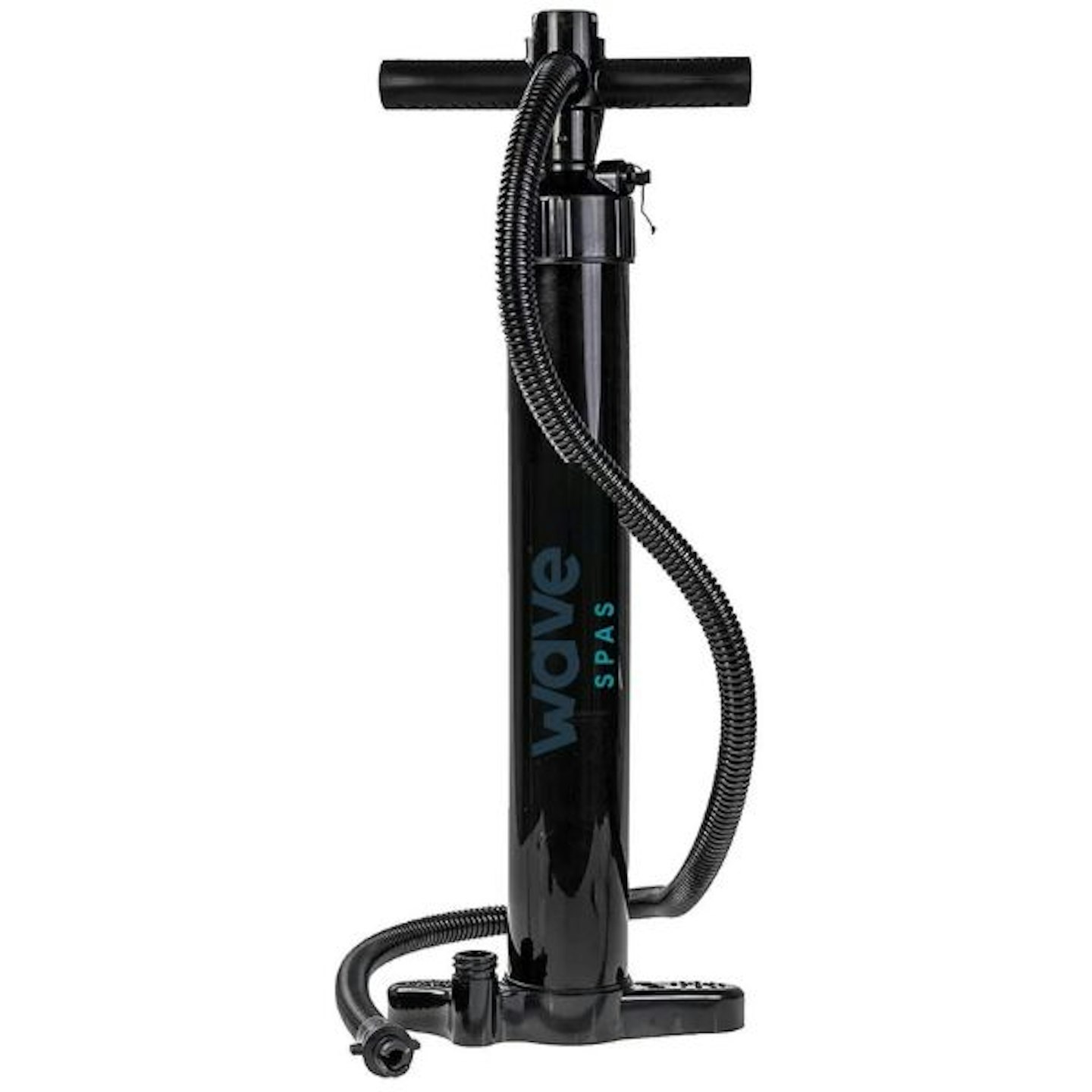
wavesupboards.com
A cheap and cheerful pump from Wave, this dual-action pump can be used as such or even as a single-action pump. The idea is to use dual action to get the board inflated and solid, then switch to single action so you do not over-inflate your board.
Pros
- Low cost
- Dual and single-action
Cons
- A low price doesn’t usually mean durable
| Dual pump: | Yes |
| Max PSI: | 27 |
| Auto shut-off: | Not Applicable |
Best budget electrical pump runner-up
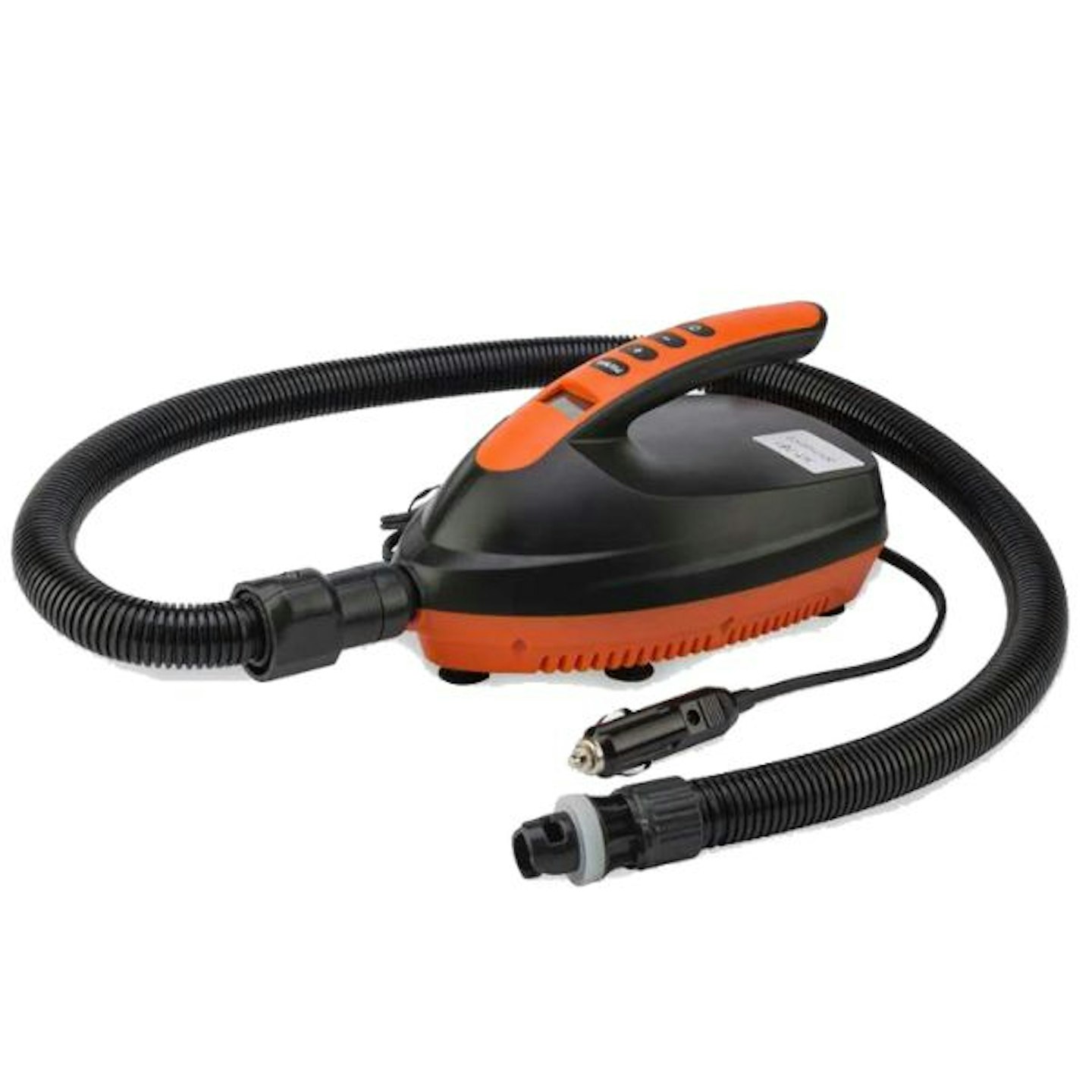
wavesupboards.com
This pump will not only inflate your stand-up paddleboard but also be suitable for an inflatable Kayak. It’ll pump up to 16 PSI at the touch of a button. Plug it into your portable battery or your car’s power output and away from your pump.
Pros
- Easy to use
- Minimal effort from you
Cons
- Requires a power source
| Dual pump: | No |
| Max PSI: | 16 PSI |
| Auto shut-off: | No |
Frequently Asked Questions
How to pump up a paddleboard
Your inflatable paddleboard will have an inlet for inflating it. This should be valved, so it allows air in but not out, meaning that once you’ve finished pumping, you can take the pump off and close the air inlet without the risk of air escaping.
To inflate, attach the pump to the inlet valve and pump to the prescribed PSI. It’s really that simple.
Are pumps universal?
It’s not so much the pump you need to worry about. It’s the attachment from your pump to your paddle board. This is, generally speaking, a twist-on valve. These are usually universal, and you shouldn’t have any trouble pumping up your inflatable kayak or airbed from the same pump. Most pumps come with a selection of valves. You can also buy valves separately.
